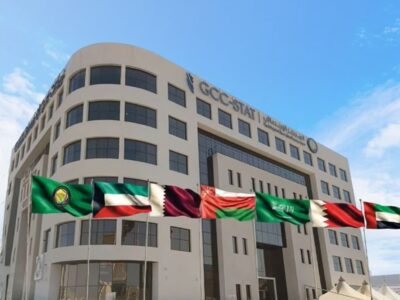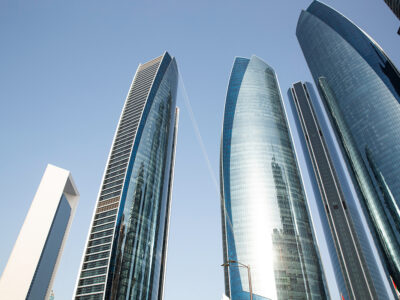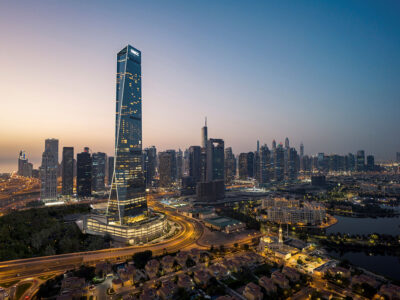Demand for nursery places easily outstrips supply. So how can parents ensure that education and safety standards are rigorously implemented? Nada El Sawy investigates.
When it comes to nurseries and preschools in Dubai, parents have a bewildering number of choices to make. There are approximately 70 nurseries throughout the city but, despite new ones popping up every few months, demand has outstripped supply so much that there is fierce competition for places. Inevitably this means some nurseries can operate on a ‘take it or leave it’ basis and don’t have to fight to fill their classrooms.
As a result it is often difficult for parents to ascertain what educational and safety systems are being used, and whether acceptable standards are being adhered to.
When it comes to teaching methods, educators say some nurseries don’t stick to the educational systems they claim to follow, don’t have qualified teachers, and don’t meet health and safety standards. ‘Schools need to live up to their reputations and to the services they are saying they will give to the children and the parents,’ says Irene Lelou, assistant head-mistress at Kid’s Island nursery in Umm Suquiem.
That is a big challenge – especially with schools being full of waiting lists. It’s very easy [for them] to become complacent and say “we don’t really need to try that hard.’
At present, the Ministry of Education does not impose educational standards on preschools, meaning that schools have to determine their own benchmarks. The Ministry of Labour & Social Affairs issues labour cards for employees, but the only requirement for teachers is a secondary school diploma.
One of the fuzziest areas of pre-schooling for parents is the varying educational systems in operation. Some nursery schools follow a particular educational system, such as the British Foundation Stage or the International Baccalaureate Primary Years Programme. There are also different approaches to learning. For example, the Waldorf approach, founded by Austrian educator Rudolf Steiner, emphasises the role of the imagination in learning. The Montessori method has particular materials and classroom areas, and stresses uninterrupted concentration on work rather than group lessons.
Such frameworks are rather theoretical and, though they may include guidance on instruction, it is up to the school to implement a specific curriculum. In Dubai, many nurseries combine different teaching methods, so it can often be hard getting to grips with what the kids will actually be taught.
It is also important to note that, just because a nursery has a certain label does not mean that it will actually follow that system. ‘You’ll get some nurseries that say, ‘British Curriculum nursery’ and they really don’t know what they’re doing,’ says Lynn Nolan, principal of the Raffles Arabian Ranches preschool.
It should be clear whether a nursery is misusing a label after researching the teaching method and comparing between schools. The Montessori label is perhaps the most misused. The name Montessori is not legally protected, and can be used by anyone. Several schools in Dubai use the name commercially or apply the method partially due to a variety of reasons, including a shortage in Montessori-trained teachers and the high costs of Montessori materials.
The best way to make a judgment call on if your nursery is really following the Montessori system is to read up on the method,’ says Monica Valrani, managing director of Tiny Home Montessori in Jumeirah.
Teacher qualifications are also very important and are easily overlooked by parents. Some nurseries have stricter guidelines than others and there is no regulated standard, making it vital that parents ask what the school’s criteria are for hiring teachers. At Children’s Garden in the Green Community, for example, teachers must have at least a bachelor’s degree in education or an education-relevant study.
‘Because of the demand for nurseries in Dubai, parents often don’t care much about teacher qualifications and there are no inspections,’ says Hala Roumani, the principal and academic advisor of Gulf Montessori, a training centre in Dubai and Kuwait. ‘The criteria for a nursery teacher are not very clear at the Ministry, so anybody with a high school diploma can become one.
It is also common that nurseries in Dubai try to cut corners by employing nannies or helpers in the classroom. When considering the teacher-student ratio, parents should make sure that ratio is measured by qualified teachers.
Beyond feeling confident that their children are receiving quality education, parents should feel at ease that the environment is safe, clean and nurturing. Dubai Municipality carries out regular inspections of nurseries, but its main focus is health-related issues. For example, it requires weekly doctor visits, a first-aid room, clean drinking water supply, a pest-free environment, and good ventilation and lighting. Schools must also provide a shaded play area, barriers outside the gates to prevent students from rushing to the main road and a fire-fighting system.
Despite these regulations, one major shortcoming is that a lot of Dubai’s nurseries were set up in villas, rather than purpose-built facilities. In recent years the Municipality has become stricter as to what is permitted. For example, it may turn down an application for a nursery proposed on a busy street due to safety concerns. According to an emailed statement from a spokesperson, the Municipality requires that a nursery be in a ‘quiet place away from pollution’.
‘In the past I think a lot of nurseries got away with things which nowadays they wouldn’t,’ says Birgit Ertl, director of the Children’s Garden in the Green Community. ‘The majority of nurseries are operated out of villas; that alone has a certain risk of security. If you are upstairs in a classroom with two-year-olds and, for instance, you have a fire, every second is of the essence.’
For all these reasons, navigating Dubai’s nurseries can often be frustrating for parents who simply want quality education and proper care for their young children. The good news is that government authorities have recognised the importance of improving education at all levels and the situation is changing.
The Knowledge and Human Development Authority, which was formed in 2006, has started working with educational institutions to implement set standards in the K-12 sector (children in primary and secondary schools) and plans to do the same in nurseries and preschools. The newly formed Dubai Schools Inspection Bureau will provide a comprehensive assessment of educational standards and performance for every school in Dubai.
In the meantime, research and reputation are invaluable tools. Nolan of Raffles Arabian Ranches says, ‘There are some bad nurseries around, but what’s going to happen? Word of mouth – people will soon move away from them and they will go to the better nurseries, and those will be the ones that will flourish.’
Nurseries in Dubai cost, on average, Dhs18,000-Dhs24,000 per academic year for a full three terms. Full-day fees are higher and the figure is more like Dhs28,000-Dhs36,000 per year. The UK’s Daycare Trust’s annual Childcare Costs survey for 2008 reveals that families pay between Dhs50,000 and Dhs57,000 for a full year.
And in the US, the average cost of a child care centre in California for infants and toddlers is Dhs39,500 per year according to a July 2007 report by the National Association of Child Care Resource & Referral Agencies. In New York, the average cost is even higher at Dhs44,000.







